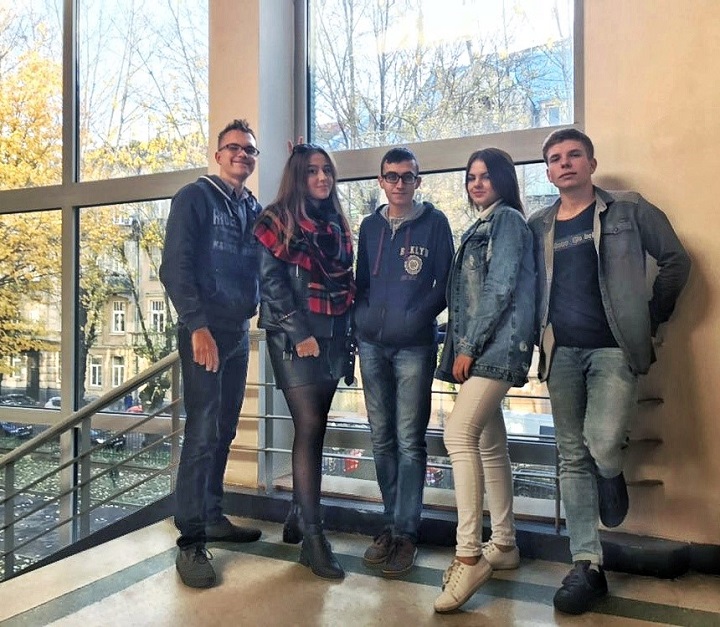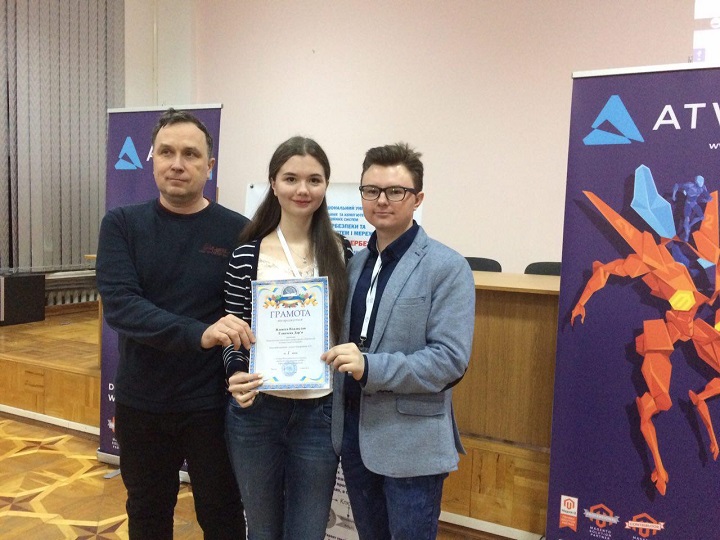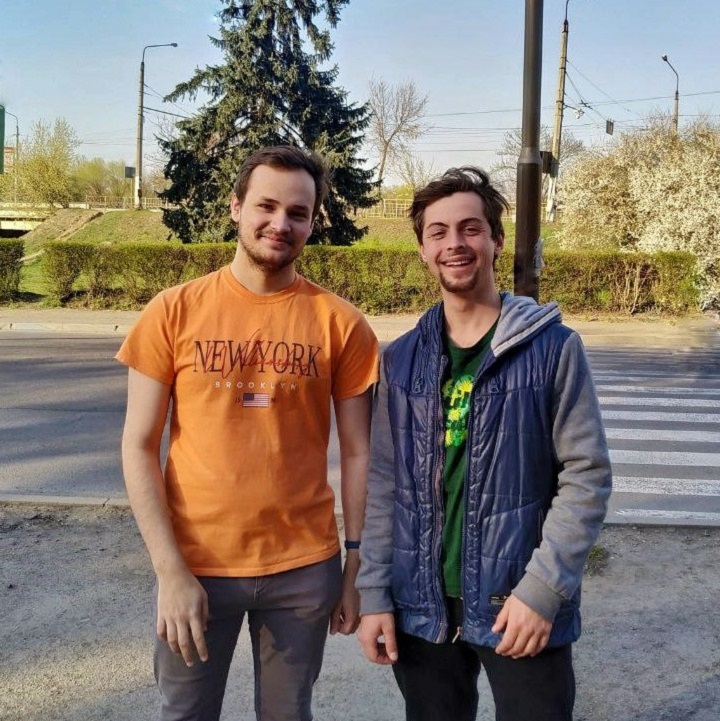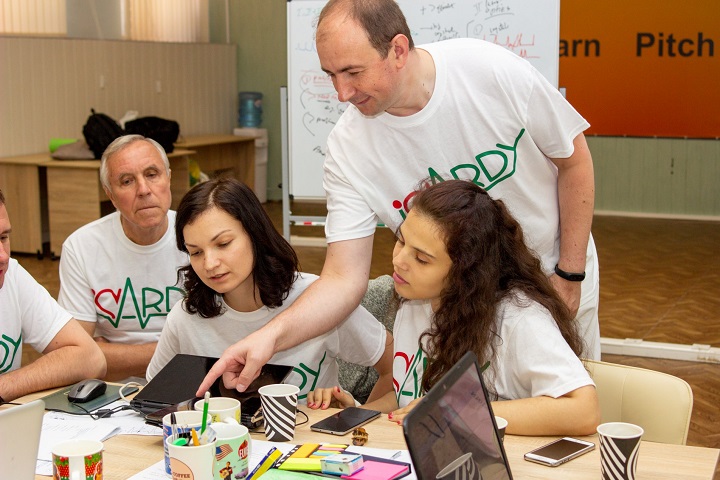You can watch a dozen films about Steve Jobs, read the biography of Jeff Bezos several times or like all the tweets by Elon Musk. Or you can simply start your own path to changing the world. We present five stories about the teams from the CIG R&D Lab program. Discover how they launched their projects with software and business models while still attending university.

The team from Lviv has no difficulty being inspired to commercialise ideas since the guys live in a true party capital of the country. The start-up DRINMIX, a barman robot, was created in the Lviv Polytechnic University. The idea is simple and captivating. It causes a burning desire to try it. Now, that’s a recipe for a perfect start-up!
In the beginning, they went to Prague to see their competitors. But the team was not impressed by the local barman robot because it only had one function, to pour wine, and it was behind a grid. Then they went to a Korean fair where they presented their project for small and medium business.
“That trip broadened our horizon because, in addition to the week of communication with businessmen from all over the world, we went on the tours where we discovered a totally different culture!” Oleksandra, the team lead, shares her impressions.
The students are convinced that the ordinary bar concept is obsolete and customers are bored just drinking to the music. It would be hard NOT to drop by the bar where a robot is mixing a cocktail from the menu or using unique recipe. It will be cheaper than a high-quality coffee machine, USD 1,500. The team is already developing the prototype and is going to present it in Europe and North America upon a successful launch in Ukraine.

When developing the project, the team from the Kharkiv Polytechnic University was driven by a good cause: to save humanity from major disasters, i.e. forest fires. They have developed a service monitoring the forest territory for fire hazard. They say they have already discussed the technology implementation with the State Emergency Service.
It works as follows: the neural network draws the conclusion on the safety of a site based on pre-processed multi-spectrum satellite images. It allows to detect a potential hazard in advance without assignment of specialists on site.
The project is also environment-friendly. Daria from ForestForesight team says, “The humanity is already severely damaging the environment, so it is very important to protect what we have.”
Yet, their way of fighting for the future is to act rather than to protest.
Wi-Hi Smart Bee-Garden
If something becomes profitable, innovators go there. Ukraine has long been among the TOP three honey exporters, but the Ukrainian bees are still being disturbed by regular hive checks. In order to help beekeepers automate the processes, the Wi-Hi team has developed a service that can:
▪️ Measure the weight of honey in separate frames online.
▪️ Determine on its own when the combs are full.
▪️ Immediately inform of beehive theft.
▪️ Function offline.
All data is transmitted to a smartphone, and the insects do not have to be disturbed anymore.
The students are planning not only to produce the software and devices, but also to maintain the systems. The entire apiary must be user-friendly for an average beekeeper. This is why the team actively communicates with the beekeepers, tests different structural models and listens to their feedback. The team is looking for their audience everywhere.
“We use “cold” calls even on OLX. Once a beekeeper sent us his product sample—he was that excited about our offer and a chance to test the service!” says Oleksii, a member of the Wi-Hi team. His father manufactures beehives, so the start-up team had someone to consult directly.

There is room for innovation in a kitchen as well! The students from the Lviv Polytechnic University made that decision and found the way to shake up the routine in a high-quality and functional way. They developed the Smart Cutting Board. It has everything to cook a perfect dinner and monitor nutritional composition of food.
• A timer—to help remember to take the meat out of the oven.
• Scales—for cutting and weighing—they do not take up additional space in the kitchen.
• A portable thermometer—to help follow the recipe.
• An app—to find out how much fats, proteins and carbohydrates the food contains and to synchronize the data.
• Other gadgets, like a can opener (this part is still under development).
This wonder-board costs $50, which is much cheaper than its foreign equivalents. Imagine that apart from regular surfaces, it will have so much “stuffing” and the software to count the nutrients. This means, it will have everything necessary to cook at the Pro level but without too much fuss.
The team faced many challenges on its path towards the paradigm shift, but Oleksandr and Valentyn have been friends since their childhood and believe that together they will overcome anything. They had delved into studying electric engineering, physics and scales operating systems to develop the project. Different spheres of interests help the young men complement each other: Valentyn is a physics and electronics geek who is fond of new research and theories, while Oleksandr is responsible for the software and business processes. Their next step is improving their English skills.

This useful technology will help the heart patients (individuals suffering from heart diseases or who are at risk) and doctors. The team has developed a service for the people in need for constant doctor’s supervision. They were inspired by their teachers and university employees who were in a risk group. The team emerged out of empathy and the desire to help. They work well together and have already developed several youth projects.
To start working on the Holter monitors (special devices collecting and analysing information), the team had their hypothesis confirmed by the doctors, who soon became project’s consultants. Then another issue arose: how to validate their medical solutions.
“It rests on several grounds: technical, legal and ethical ones. The solution we have chosen is to study the experience of similar start-ups in different countries,” the developers say.
The team has already made preliminary arrangements with three hospitals in the regions of Zaporizhzhia and Kharkiv. The technology will help the health care professionals earn money off of technologies, as opposed to the state of their patients. The use of Holter monitors will be a win-win for everyone: patients, doctors, the service and even the tax authority. Such Holter monitors are an entire big data dimension that opens up new research opportunities!
These stories demonstrate that a scope of innovation is inexhaustible. With expert support from experienced specialists, a project can be launched despite the young age and lack of scientific experience.